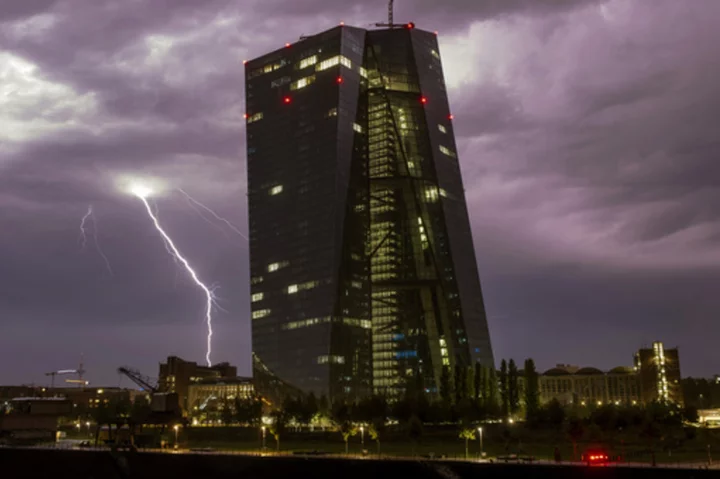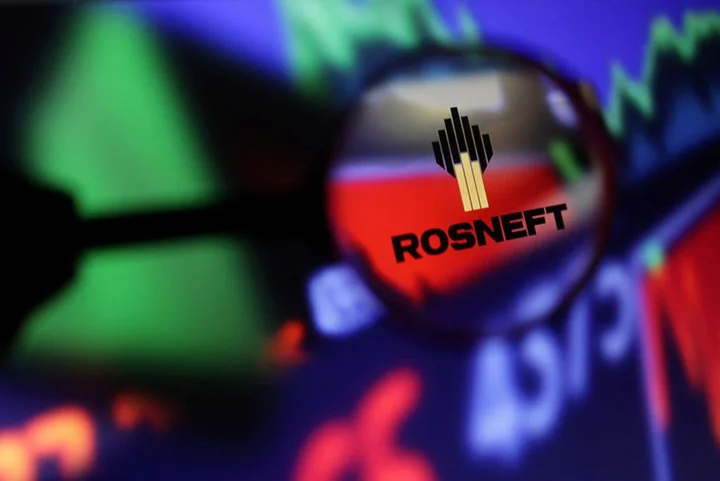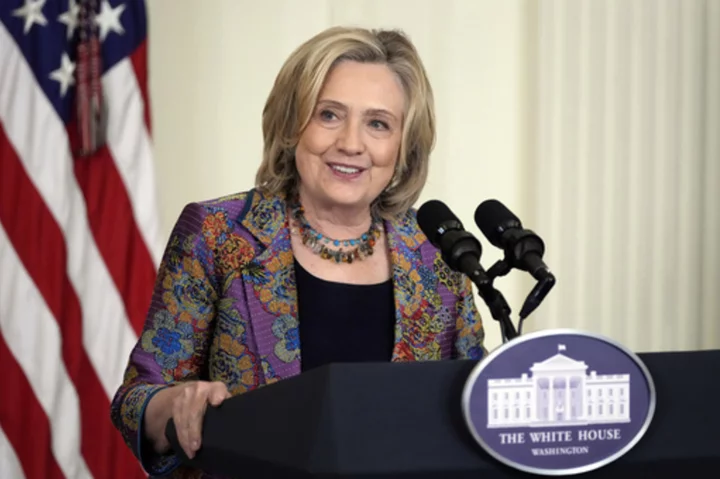FRANKFURT, Germany (AP) — Caught between stubborn inflation and weakening growth, the European Central Bank faces a close call Thursday on whether to halt its record run of interest rate hikes amid alarming signs that the economy could slide into recession.
The decision comes as the ECB, U.S. Federal Reserve and other major central banks are nearing the end of their swift series of rate hikes aimed at squelching inflation — and hoping the damage to economic growth from higher borrowing costs is not too extensive.
ECB President Christine Lagarde has said the latest rate decision will be made based on available data, a switch from the last nine meetings when rate hikes were signaled ahead of time.
Annual inflation of 5.3% in the 20 countries that use the euro currency is still well above the bank's target of 2%, robbing consumers of purchasing power and contributing to economic stagnation that has kept growth just above zero this year — supporting arguments for a 10th straight rate increase.
Pushing the other way is the growing awareness that higher borrowing costs are weighing on decisions by consumers and businesses to invest and spend and are becoming a burden on the economy.
A final rate hike is likely Thursday because underlying inflation is too high to satisfy many members of the bank's 26-person governing council, said Marco Valli, chief European economist at UniCredit Bank in Milan. Underlying, or “core” inflation — which excludes volatile food and fuel prices — is still too high at 5.3% to instill confidence that price increases are safely headed downward.
But Valli added that it was “a very close call.”
Market indicators of future rate moves show many are leaning against an ECB rate hike Thursday. But an ECB official pushed back against that assumption last week. Governing council member Klaas Knot said markets “may underestimate” the chance of a hike.
Recent signs have been downbeat. The major European economies — Germany, France, Spain and Italy — saw shrinking activity in August in the services sector even at the tail end of a strong tourism summer in Spain and Italy, according to S&P Global's surveys of purchasing managers. Services is a broad category that includes hotel stays, haircuts, car repairs and medical treatment.
That comes on top of a slowdown in global manufacturing that is hitting Germany, Europe's biggest economy, particularly hard.
The economic picture is unusual and does not resemble a typical recession because unemployment is at a record low of 6.4%.
Another factor weighing on the outlook is the euro falling in value against the strengthening U.S. dollar as investors take the view that economic weakness will hit Europe and China. They are betting that the U.S. Federal Reserve might manage a “soft landing” by finishing its rate hikes without pushing the economy into a downturn.
The Fed made its 11th rate increase in July, bringing its key rate to the highest level in 22 years after pausing in June. Economists and investors generally expect the Fed to skip a rate hike at its meeting next week, but it could increase again in November.
Inflation is lower in the U.S. — at 3.7% — than in Europe despite an upward bump from gasoline prices in August.
Central banks around the world have been hiking rates to stamp out inflation that broke out after the sharp economic rebound from the COVID-19 pandemic strained supply chains and Russia's invasion of Ukraine sent food and energy prices higher.
The Bank of England raised rates for the 14th straight time last month, and markets think it's more likely than not that the central bank would hike again when it meets next week.
Interest rates combat inflation by raising the cost of credit for consumer purchases, particularly houses, and for business investment in buildings and equipment. That cools off demand for goods and relieves upward pressure on prices. The flip side is that rate hikes can hurt economic growth if they're overdone.
The ECB's policy rate stands at 3.75%, up from minus 0.5% in July 2022, marking the fastest series of rate rises since the shared euro currency was launched in 1999.









